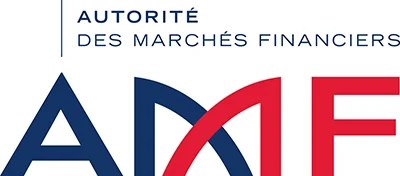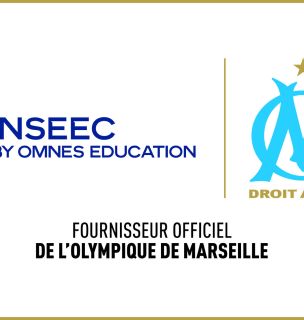Regulatory bodies in the French and international financial industries have tightened their requirements with a proliferation of new regulations
Ellen KOUNTZ
Dean of the Finance Department – Paris Campus
Why choose the MSc Risk Management, Control & Compliance course?k Management, Control & Compliance course
Since the 2008 crisis, French and foreign financial industry regulators have stepped up their demands with a flurry of new regulations. While they have indeed contributed to better control of the financial sphere and prevention of bankruptcy and crisis risks, through the diversity of their angles and scopes (balance sheet balance, prevention of money laundering, corruption, prevention of operational risks, etc.), regulatory texts have become a new body of rules.
These regulations are taking on a mandatory and pervasive character in financial organizations, which are subject to very heavy penalties in the event of non-compliance. Needs have grown so rapidly that we have had to recruit on a massive scale; this has created a “call for air” for training focused on these issues: “Permanent control and compliance”.
This program provides students with training tailored to the needs of organizations in the fields of risk management, management control and compliance. The program emphasizes the key role played by management controllers and compliance officers within an organization, and the major impact of appropriate risk management. We train students who will participate in the implementation of corporate protection and decision-making mechanisms. The most frequently practiced professions are: risk officer, management controller, business & management consultant, compliance officer.
Professional label

INSEEC students take the AMF (Autorité des Marchés Financiers) certification as part of their MSc Audit & Contrôle de Gestion.
Certification objective
The aim of the “Expert(e) en Audit, Contrôle & Conseil” certification is to meet the changing skills needs of the finance sector. The evolution of these skills stems from changes in the activities and professions of the finance sector: an increase in the regulatory environment, in the volume of data to be processed and analyzed, in digitalization, in technicalization, in the professionalization of missions and in the competitive environment.
Découvrez le MSc Risk Management, Contrôle & Compliance de l’INSEEC

A 1 or 2-year diploma to become an expert in risk management and compliance.
- Hours 1st year of MSc: 441 hours
- Hours in 2nd year of MSc: 441 hours
How to apply for INSEEC’s Master of Science in Risk Management, Control & Compliance ?
Prerequisites required
The candidate must justify :
- For entry into 4th year (MSc1): hold a level 6 RNCP qualification and/or have validated the equivalent of 180 ECTS acquired in a course equivalent to the field concerned.
- For entry into 5th year (MSc2): hold a level 6 RNCP qualification and/or have validated the equivalent of 240 ECTS acquired in a course equivalent to the field concerned.
Would you like to find out more about the MSc in Risk Management, Control & Compliance program? Sign up for an Information Meeting !
Would you like to find out more about the admission requirements for our Risk Management, Control and Compliance course ?
What courses does the Master of Science in Risk Management, Control & Compliance offer?
The courses presented below are given as examples, and may vary slightly depending on the teaching campus. Course content is adapted each year to market developments and updated before the start of the new academic year.
1st year courses
CROSS-DISCIPLINARY & FUNDAMENTAL COURSES – 1ST YEAR
BUDGET MANAGEMENT & DASHBOARDS
The aim is to acquire key skills in budget management and reporting.
Particular emphasis will be placed on budget architecture, with the implementation of summary documents, project management control and its link with budget management, and the creation and management of dashboards.
CORPORATE STRATEGY & BUSINESS PLAN
The aim of this module is to teach you how to draw up a business plan:
- Design of a costed business creation or development project.
- Several stages are covered: feasibility study, market targeting, opportunities and risks, strengths and weaknesses, communication, financing plan and profitability.
BUSINESS ENGLISH
Perfect your English comprehension and communication skills in a wider context than just business English.
SOFTWARE & DECISION-SUPPORT TOOLS
The aim of this module is to develop students’ IT skills to meet the needs of companies in terms of budgeting, sales, project management, personnel management and communication.
and communication: Excel, Word, Powerpoint, teamwork tools, business software.
The aim is to become proficient with office automation tools, quickly identify and correct errors, customize existing tools or create your own.
BUSINESS GAME
- The business game is played using a management simulator.
- Groups of students are given the responsibility of managing a company in real time.
- All major business functions are covered.
- Students make decisions to maximize the company’s profitability.
PROFESSIONAL TOOLS & METHODS
- This module enables learners to improve their CVs and posture through role-playing exercises (professional simulation, speaking, etc.);
- Practical and professionalizing workshops (CV, professional social networks, coaching, etc.) as well as professional conferences and master classes.
SPECIALIZED COURSES
ACCOUNTING
À la comptabilité générale is to explain the “raison d’être”, main uses, documents and mechanisms of general accounting, including :
- The purpose, content and use of an organization’s balance sheet and income statement.
- Mechanisms for linking these two accounting documents.
- How to record the company’s main transactions.
- The main aim of this introductory module to general accounting is to provide all students, whatever their career plans, with a basic accounting culture that will enable them to understand the content of financial statements, and to use this knowledge in discussions with accountants.
FUNDAMENTALS OF FINANCIAL ANALYSIS
- Modern financial diagnosis tools for an overall analysis of the company.
- Financial diagnosis tools: study of profitability, solvency and financial structure.
- Profitability analysis.
MANAGEMENT CONTROL
- Break-even and breakeven calculations.
- Budget management techniques, activity monitoring and dashboards.
- Analysis and use of management control, costing methods, analysis center methods, rational allocation of fixed costs, marginal costs, partial costs.
INTERNAL AUDIT
- Assessment of the company’s operations and level of expertise.
- Providing advice and studying tools to help create added value.
- Evolution of the auditing profession.
AUDITING & STATUTORY AUDITORS
- The seminar covers the auditing of financial statements, as well as audit procedures, tests, methods and tools.
- Presentation of the statutory audit, general aspects and implementation of the audit, assessment of internal control, specific verifications and end-of-assignment reports.
- Analytical procedures, physical controls, management declarations.
ADVANCED ACCOUNTING
- Mastery of accounting procedures.
- Consolidation of accounts.
- Profit appropriation.
- Capital reduction.
- Securities valuation.
- Company incorporation.
- Capital increases.
- Convergence of French GAAP with IFRS.
IN-DEPTH FINANCIAL ANALYSIS
- Master the fundamental concepts required for financial forecasting.
- Sources of information, sector analysis, analysis of economic and financial performance, analysis of financial structure and financing methods.
BUSINESS LAW
- Definition of business law.
- The notion of contract.
- Obligations of means and results.
- The concept of legal personality, how SARLs, SAs and SNCs work.
- Criteria for choosing a business form.
INTERNATIONAL FINANCIAL STATEMENTS
- Presentation of IFRS and US GAAP.
- Comparison of financial flows over time.
- Organization of the accounting framework, the conceptual framework of standards, presentation of IFRS/US GAAP financial statements.
- Valuation and recognition of financial instruments.
CORPORATE FINANCE
- Investment projects: selection criteria and the real options approach.
- Financing methods: quasi-equity, bond financing, negotiable debt securities, IPOs, venture capital.
- Explanatory theories of financing choices.
- Treasury and management of centralized flows.
CORPORATE TAXATION
- The principles and scope of corporate income tax, tax optimization within a group.
- International taxation.
- VAT: principles and mechanisms.
- Special VAT regimes.
- VAT territoriality: rules governing VAT territoriality, supplies of movable goods and services.
- VAT liability: VAT base and calculation.
E AMF
- This hybrid module will provide an understanding of the role of the Autorité des Marchés Financiers in the regulation and supervision of financial markets, covering the following topics: financial instruments, cryptoactives and risks, collective management, market organization, post-trade and market infrastructures, securities issuance and trading, and accounting and financial fundamentals.
FINANCIAL MATHEMATICS
- Understand and master the principles of discounting and capitalization.
- Interest calculation.
- Comparing financial flows over time.
- Calculate the main profitability indicators for an investment project.
EXAMS & SUPPORT
WRITTEN EXAMS
2nd year courses
PERFORMANCE & CONTROL
FINANCIAL STATEMENTS & DIAGNOSTICS
- Analyze a company’s financial statements to assess its profitability, solvency and economic performance.
- Emphasis is placed on the financial diagnostic techniques used to detect potential accounting or financial risks, while integrating IFRS standards and reporting obligations.
INTERNAL CONTROL & RISK MANAGEMENT
- Design and implementation of internal control systems to limit financial, operational and regulatory risks.
- Risk mapping and development of governance processes in line with legal requirements and international standards.
MANAGEMENT CONTROL & COSTING
- Application of costing techniques to analyze profitability and optimize financial resources.
- Build and use dashboards to monitor economic performance and adjust strategic decisions.
MANAGEMENT CONTROL & STRATEGIC REPORTING
- Implementation of performance indicators and reporting systems to align financial strategy with operational objectives.
- Use of analytical tools to measure the effectiveness of budgetary and financial choices.
INTERNATIONAL ANTI-BRIBERY MECHANISM
- Study of anti-corruption regulations such as the FCPA, the Sapin II law and the UK Bribery Act.
- Identification of corruption risks and implementation of compliance programs and procedures to prevent conflicts of interest.
INTERNATIONAL SANCTIONS
- Analysis of economic and financial sanctions imposed by the UN, the European Union and the United States (OFAC).
- Assessment of impacts on international transactions and compliance of financial and commercial operations.
FINANCIAL OPTIMIZATION & RECOMMENDATIONS
AUDIT & DIGITAL COMPLIANCE
- Risk assessment of information systems and digital infrastructures.
- Application of cybersecurity regulations (RGPD, NIS2) and implementation of IT audits to ensure compliance and data protection.
BANKING COMPLIANCE
- Application of banking regulations such as Basel III, Solvency II and MIFID II.
- Monitoring financial transactions, combating money laundering and implementing compliance obligations in the banking sector.
FRAUD PREVENTION & ANTI-CORRUPTION
- Identification of fraud schemes and money laundering techniques.
- Development of prevention, monitoring and investigation programs to limit the risk of fraud within organizations.
RISK MANAGEMENT IN A BANKING ENVIRONMENT
- Analysis of market, credit and liquidity risks specific to the banking sector.
- Study of regulatory mechanisms and risk management tools to optimize the financial stability of institutions.
GEOPOLITICAL RISK & COMPLIANCE
- Assess the impact of geopolitical tensions and economic sanctions on compliance strategies.
- Anticipation of risks linked to trade conflicts and political instability to adapt governance systems.
TAXATION & REPORTING
CERTIFICATION & AUDITING
- Role and responsibilities of the statutory auditor in the audit and certification of financial statements.
- Application of auditing standards and control methodologies to guarantee the reliability of financial information.
CORPORATE TAXATION
- Study of national and international tax regulations.
- Tax optimization in compliance with legal obligations and management of risks linked to tax evasion and fraud.
BUSINESS CRIMINAL LAW
- Analysis of economic and financial offences: fraud, misuse of corporate assets, money laundering.
- Identify the responsibilities of managers and the sanctions applicable in the event of non-compliance with legal rules.
COMPETITION LAW
- Regulation and control of anti-competitive practices.
- Study of sanctions for abuse of dominant positions, illicit cartels and restrictive competition practices.
TECHAWAT FIRST STEPS ON CYBERSECURITY
- An introduction to the fundamentals of computer security, designed to help participants understand online threats and adopt effective security practices.
- It covers computer defense principles, hacker ethics, as well as real-life case studies to learn how to prevent and respond to common cyberattacks.
- Acquire the essential skills to protect personal and business data, while raising awareness of critical cybersecurity issues in a connected world.
RESEARCH & APPLICATIONS
PROFESSIONAL TOOLS & METHODS
- This module enables learners to improve their CVs and posture through role-playing exercises (business game, professional simulation, public speaking, etc.).
- Practical and professionalizing workshops (CV, professional social networks, coaching, etc.) as well as professional conferences and master classes.
APPLIED RESEARCH PAPER
- Enable learners to understand what is expected of an applied research dissertation.
- Formulate a problem, build a literature review, choose a study methodology, make recommendations.
- Construct an applied research dissertation, including a literature review, a qualitative and/or quantitative study, and recommendations.
PREPARATION & AMF CERTIFICATION
- Acquire the knowledge required to pass the Autorité des Marchés Financiers (AMF) certification exam.
- Study of financial instruments, regulatory requirements and professional practices in the financial sector.
GOVERNANCE & CSR
- Integration of Corporate Social Responsibility (CSR) principles into corporate governance.
- Application of ESG (Environment, Social, Governance) criteria to ensure compliance and sustainability of financial strategies.
EXAMS & SUPPORT
WRITTEN EXAMS
- Written exams
- Research dissertation defense
Course content is adapted each year and updated before the start of the new school year.
What are the start dates and study rhythms ?
There are two re-entries per year, in February/March and September/October. To check the start date of each intake, contact the admissions department directly.
The pace of courses may vary from campus to campus, and depending on whether the course is taken under an internship agreement (initial) or a professionalization/apprenticeship contract (continuing).
The work-study contract must be signed for a period of 12 months (MSc 2) or 24 months (MSc1 + MSc 2).
To find out the length of the staggered start contract, contact the admissions department of the campus you are interested in.

What career opportunities are there after an MSc in Risk Management, Control & Compliance ?
- Contrôleur de gestion
- Auditeur financier / Auditeur
- Consultant en comptabilité / Consultant en finance / Consultant en gestion
- Responsable comptable
- Juriste en droit bancaire et fiscal / Juriste en marchés financiers
For detailed job descriptions by specialization, click here.
What blocks of business skills have been developed ?
The professional certification allows you to prepare for the following blocks of skills :
- Manage and control company performance
- Carry out and lead controls and audits within the company or for a customer
- Advise and inform on tax and business law issues
- Manage business teams as part of an audit and performance analysis assignment
Description of how to acquire certification by capitalizing on blocks of skills and/or by correspondence
Certification is obtained by :
- Validation of four blocks of skills common to all courses (a mark of 10/20 or higher in each block of skills).
- Completion of a minimum 132-day work placement in the second year of the program (MSc2).
Professional certification
Professional certification of “Expert(e) en Audit, Contrôle & Conseil” level 7 (EU), NSF codes 313 and 314, issued by INSEEC MSc (INSEEC EXECUTIVE EDUCATION, CEE-SO, CEE-RA, CEFAS, MBA INSTITUTE), registered under number 35008 in the RNCP (Répertoire National des Certifications Professionnelles) by decision of the Director General of France Compétences on October 14, 2020.
Certification is awarded by capitalizing on all the skill blocks. Each skill in a block must be validated to obtain the block of skills. Partial validation of a block is not possible. It is also accessible via the Validation of Acquired Experience..
To find out more about the blocks of skills associated with this RNCP qualification, click here.
What are the teaching methods ?
Teaching methods
- Lectures and interactive courses
- Role-playing through group and/or individual case studies carried out by students
- Conferences, seminars and educational visits
Evaluation methods
- Individual and/or group case studies
- Individual and/or group oral presentations
- Individual and/or group files
- Applied research dissertation with individual defense
Methods and tools
- Assessment is carried out face-to-face, in the form of continuous assessment or final exams in the form of mid-term exams.
What are the tuition fees for the 2025 course ?
FALL INTAKE – 2025
Initial training:
- MSc1: €11,850
- MSc2: €13,500
Apprenticeship program:
- 24 months : €23,850 before tax
- MSc2 : €14,250 before tax
International students pack
Mandatory fee of €700 for exclusive support services for international students living outside the European Union.
SPRING INTAKE – 2026
Initial training:
- MSc1: €11,850
- MSc2: €13,500
Apprenticeship program:
- 24 months : €23,850 before tax
- MSc2 : €14,250 before tax
International students pack
Mandatory fee of €700 for exclusive support services for international students living outside the European Union.
In the context of work-study training, tuition fees are payable by the OPCO and the company signing the contract.
Do you have any questions about work-study or our school in general? Consult our frequently asked questions.
VAE/VAP :
- VAE : €4,200 before tax
- VAP : €850 before tax
International students pack
Mandatory fee for exclusive support services for international students living outside the European Union.
- Fall intake (2025) – September/October: €700
- Spring intake (2026) – February/March: €700
Application fee
The application fee is €80.
What kind of financial aid is available ?
INSEEC offers several financial aid schemes:
- The alternating rhythm, in internship or work-study contract
- The right to training via the CPF
- Partnerships with banking institutions referenced at INSEEC
key figures for rncp title N°35008 “Expert en audit, contrôle et conseil” (audit, control and consulting expert)
93%
National success rate – Class of 2024
97%
Presentation rate – Promo 2024
84%
Overall integration rate (428 respondents out of 578) – Promo 2023
87%
Satisfaction rate at 6 months (225 respondents out of 578) – Promo 2022
* Details are available in this document (national results and by regional certifier).
What is our school’s disability policy ?
The OMNES Education Group pays particular attention to the societal environment, including the disability dimension. Indeed, we believe that students with disabilities should not have any problems in pursuing their studies and starting a professional career. We accompany them to facilitate their access to the premises, offer them personalized advice as well as adapted accommodations throughout their school career.
Accessibility of premises: all our campuses are accessible to people with disabilities.
To learn more about the OMNES Education Group’s disability policy, click here.
Contacts des référents handicap par campus :
- Bordeaux : Maxime DOUENS – mdouens@inseec.com
- Lyon : Anissa GASMI – agasmi@inseec.com
- Rennes : Laura LE CALVEZ – llecalvez@omneseducation.com
- Paris : Farid HAMAD – fhamad@inseec.com
- Chambéry : Marianne FERLAY – mferlay@inseec-edu.com
- Marseille : Océane VALOTTI – ovalotti@omneseducation.com
- Toulouse : Amanda MARNEIX – amarneix@omneseducation.com
News

June 2024
INSEEC hosted the CFNews Grands Prix de la Croissance Externe Sud Ouest for the second year running
Read more





